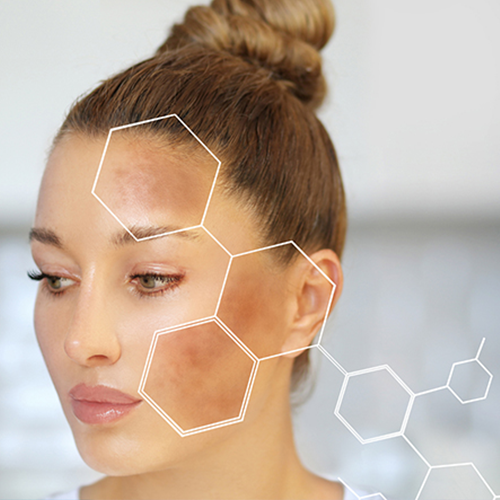Hyperpigmentation on the face can occur after sun exposure, pregnancy, oral medications, hormones or as a consequence of genetic predisposition. It is a common problem amongst those with darker skin types.
Conventional treatments for hyperpigmentation on the face include prescription-only topicals and preventative measures such as sun avoidance. These are somewhat limited in their efficacy, however, as prescription medications can cause problems for those with darker skin types and preventative measures cannot help those with existing problems.
Luckily, there are a number of solutions for discoloured patches of hyperpigmentation on the face and body. b.e.a Skin Clinic offers a variety of proven and effective treatments, several of which are highlighted below.

TREATMENTS FOR HYPERPIGMENTATION OF FACIAL & BODY AREAS
Recommended treatments for hyperpigmentation ultimately depend on the cause of the problem and the severity of the discolouration.
- Professional chemical peeling agents such as glycolic acid, trichloroacetic acid, phenol, glutathione and anti-inflammatory AHAs such as salicylic acid can treat cases of cutaneous hyperpigmentation, melasma and lentigines.
- Skin resurfacing procedures such as PDT (Photodynamic Therapy) and SkinMorph Fractional Microneedling can be useful in treating severe cases of hyperpigmentation, including in significant cases of post-inflammatory hyperpigmentation accompanied by acne and scars.
- Clinical LED Light Therapy with yellow or green light is used in conjunction with Medical Microdermabrasion to gently treat light hyperpigmented lesions. Freckles, mild sun damage and areas of slight discolouration benefit from this treatment approach, which is best accompanied by a tailored home care plan.
- Home care products from bea Skin Care with medical grade retinol, corticosteroids and hydroquinone-free lightening agents can vastly improve the appearance of hyperpigmentation on the face, neck and body.
FURTHER INFORMATION
For optimal results, b.e.a Skin Clinic’s experienced practitioners recommend a hyperpigmentation home care programme using bea Skin Care products, which are safe for darker skin types. Our clinical hyperpigmentation treatments require clients to cease the use of photosensitising drugs in advance of treatment. We also recommend applying an SPF of at least 30 in all seasons to exposed areas of skin, in order to prevent the occurrence of further pigmentation.
Book A Consultation
OPENING HOURS
Monday - Friday: 10am-8pm
Saturday: 10am-5pm
CONTACT INFO
T: +44 (0)203 322 5958
E: info@bea-skin.com
UK CLINICS
1. 98 Crawford St
Marylebone, London
W1H 2HL
2. Orpington, Kent
BR5
INTERNATIONAL LOCATIONS
Grote Market 32,
9210 Beveren-Waas,
Antwerp, Belgium
Abuja, Nigeria

